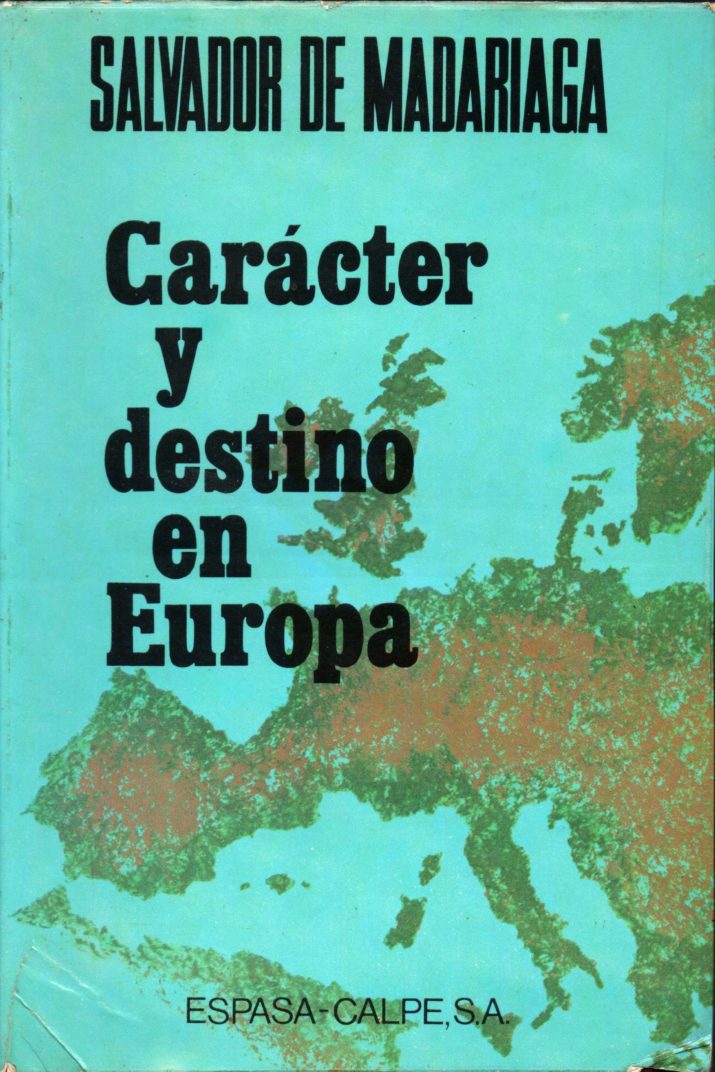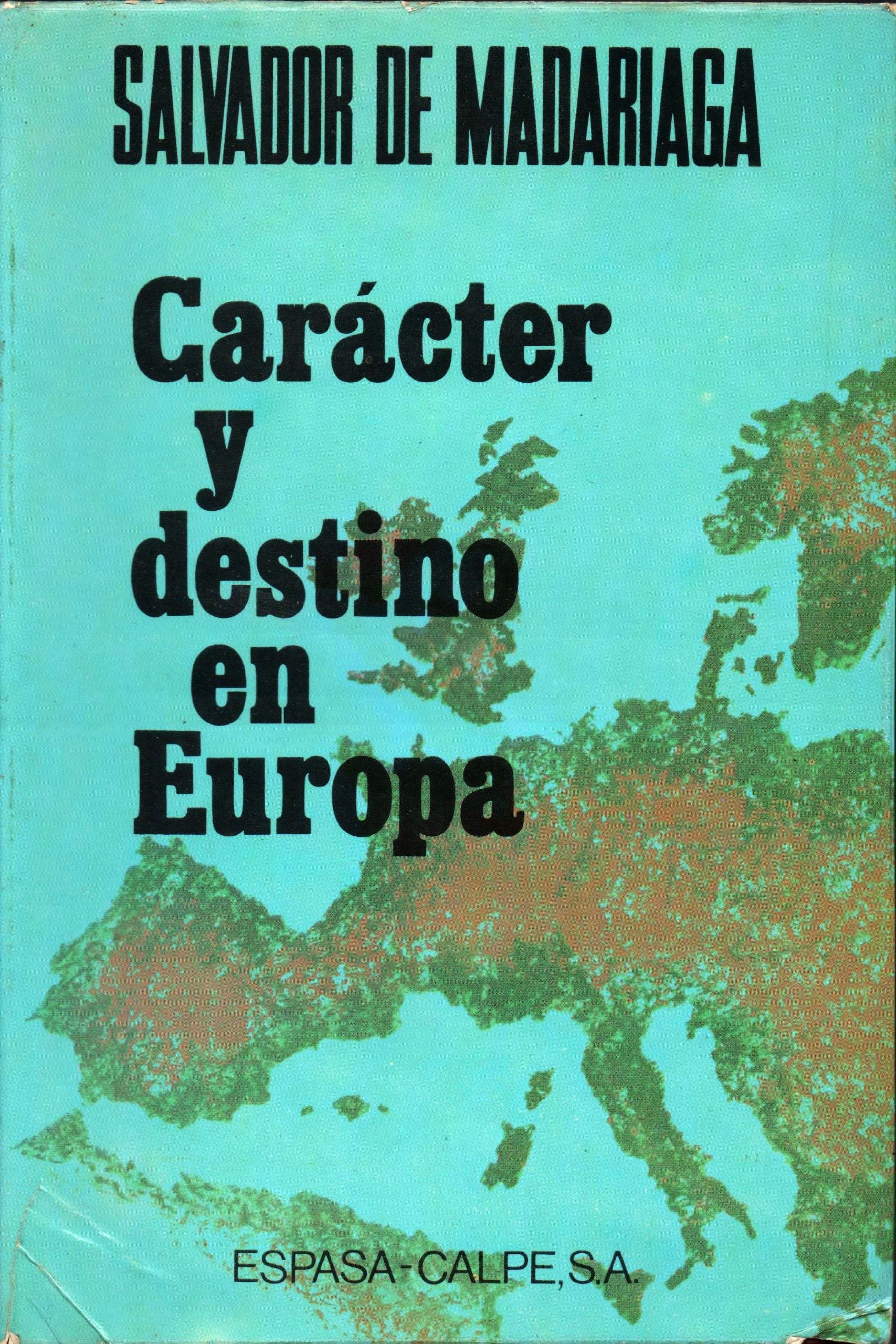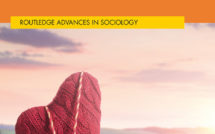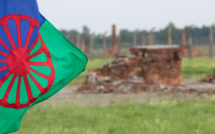
Salvador de Madariaga and the “Solidarity of Being:” Limits and Potential of an Imagined “Free Movement of Persons” in Post-WWII Europe

“It’s not trespassing to go beyond your own boundaries.”—Dewitt Jones
Though largely neglected in recent studies about the European integration process, Salvador de Madariaga was a key forerunner and contributor to the “European idea,” as well as a highly influential Spanish diplomat, writer, historian, and pacifist at different critical junctures of the twentieth century. He was nominated for the Nobel Prize in Literature and for the Nobel Peace Prize, and awarded the Charlemagne Prize in 1973. Madariaga was also a press member of the Secretariat of the League of Nations in 1921, and chief of the Disarmament Section in 1922. In 1928, he was appointed Professor of Spanish Studies at the University of Oxford and by the start of the Spanish Civil War, he had gone into exile in the UK. In 1962, Madariaga was one of the main organizers of the meeting of different anti-Francoist opposition groups in the framework of the Congress of the European Movement in Munich. As a writer, he cultivated various genres: historical and political essay, literary criticism, novel, biography, and poetry. As a precursor of “the idea of Europe,” he defended a broad and inclusive conception of which territories should be included in “Europe,” advancing that this “idea” encompassed much more than a mere geographical continent and his approach and contributions to the European integration process have been regarded as a form of “constructive Europeanism.”
To study his perspectives on mobility and fundamental rights in a European context, the Salvador de Madariaga Archives (Archivos de Salvador de Madariaga, ASM) in La Coruña (Spain) offer invaluable materials to analyze the genesis and development of such long-standing considerations from the post-WWII period to the culmination of the writer’s intellectual production on these topics, which extended itself well into the mid-1960s. These contributions include his reflections upon an eventually tangible “freedom of movement” across the continent, which “can only be attained by returning to a concept of community,” as repeatedly expressed in his Oxford Letters and in the so-called Madariaga’s Zurich papers.[1] Madariaga’s ideas in this direction were particularly explored and communicated in his poetry, his essays, his correspondence, and his networking initiatives, helpfully interconnected through the “Political Activity in the Exile” documentary collection at the ASM. These collections offer an unparalleled opportunity to grasp the most subjective dimensions of a “European free movement” concept through sources that bring together intellectual and political activism points of convergence, as illustrated in these publications: “Reflections on Europe,” published by the University of Berna; “Meditations on Europe” (Meditaciones sobre Europa), published at the Neue Zürcher Zeitung and the article series “Save freedom!” and “Moving freely!” published at the The Kaleidoscope of World Politics.
“Europe: The future lies beyond your own boundaries!”
During his first period at the University of Oxford, when he was appointed as first “King Alfonso XIII” Professor of Spanish Studies in 1927, Madariaga launched a series of talks with the common denominator of “Europe” as a point of encounter. Against this backdrop, he aimed to center these European unity “team-building” dialogues on the slogan: “Europe: The future lies beyond your own boundaries!”[2] This ground-breaking premise implied a sense of common enterprise among European intellectuals in exile which deposited in him not only trust but also the freedom to mold a new paradigm for a common “transnational” existence.
Indeed, the outcry “Europe: The future lies beyond your own boundaries!” meant, in his eyes, that: firstly, the future of the continent had its home in a rupture of internal and artificial “national” frontiers; secondly, that Europe should look for a second chance to re-position herself in the wider world as an actor defined by peace and cooperation purposes and modalities[3] and finally, that this should be an inter- and a trans-generational enterprise. Thus, this form of “affective glue” was centered on dispelling the disruptive forces of fragmentation in the context of the Cold War. These contentious barriers in post-war Europe would give rise to Madariaga’s counter-criticism through his notion of the so-called “forbidden places,” which he firstly expressed through poetry, later recurring to this concept as part of his political activity in exile, mainly conveyed via multilingual frontier-breaking correspondence.
“Forbidden places:” Europe as a geography of possibility
Madariaga drew the emerging Cold War landscape as a seemingly inescapable prison, where every human being is suffering the effects of The Blowing-Up of the Parthenon,[4] as his book of the same title reminds us. However, despite the gloomy scenario depicted in his English language impactful poem “Forbidden Places,” politically, he always referred to Europe as “a geography of possibility.”
In his own verses:
Cold faces barred access to the four forbidden places:
North – Hate
South – War
East – Challenge
West – Scorn.
Ancestors and time wore thin the traces
And when they drowned that dream in dust
Of strife
They lost faith in their own life
And cursed it in their hearts.[5]
In sum, in a map where all the coordinates are “forbidden places,” the territory is restricted to an internalized projection towards the future. Believing in the feasibility of such projection became, in Madariaga’s perspective, not just the most attainable way to live, but the only possible one. Plus, that was, for sure, the map of a political exile, but also the blueprint of a scenario designer committed with a hopeful future to come, which he might not even glimpse.
This sense of retrenchment within the inner self was concomitant with his experience of living the repressive consequences of an authoritarian regime from afar. This seemed to lead to the building of a postponed, imaginary space where exile would not be needed; where moving freely (and returning to one’s roots) would not belong to a space populated by threats and where free speech would not be subjected to the arbitrary variables of brutal subduing. However, retrenchment does not move in parallel with liberation: It only reverberates with temporary refuge bringing back Madariaga’s poignant question from the time when he was in charge of the Disarmament Secretariat at the League of Nations: “Are trench scars closed?”[6] In the post-WWII era, his reply was turning towards hope as a concession that human societies should work to deserve, learning from past darkness and focusing on the responsibility of the re-builder.
Meditations on Europe (Meditaciones sobre Europa)
Madariaga’s later compendium, entitled Meditaciones sobre Europa, was imbued with a sense of positive foreboding, which “had” to be shared, as expressed in numerous letters of this period contained in the “Political Activity in Exile” ASM collections. For instance, he conveyed this outright feeling of renovated hope in a common European future these terms: “Europe is about to become a reality. We should better think of a renaissance.”[7] In his writings, a renaissance is seen as a collectively perceived turning point that aims to supersede individual initiatives. Madariaga used the compelling energy of this call for arms to articulate collaborative bonds via the European Movement. From a symbolic and spatial viewpoint, Madariaga usually referred to the positive semantic charge of “roads, rivers, channels, railways, electric lines, telephonic and telegraphic lines…” as they formed, step by step “the cardiovascular system and the nervous fibers of this emerging political system”[8] called “Europe,” the common home, as he would later elaborate.
During the sixties, Madariaga repeatedly asserted how Europe started to rely on its own strength and how this “would channel our common united destiny.”[9] In this sense, his early references to “a freedom to move” were focused on ways to transform former barriers into bridges and former conflicts into cooperation. Moreover, he often referred to transnational continental communications in all directions as further evidence that there was no such phenomenon as “national life.” Transnational exchanges and dialogues were, indeed, to be seen as a manifestation of “an interconnected European life.”[10] This notion was backed by his historical essays, which purported the argument of defining longue durée European history as a history of interactions. In his eyes, superseding the brutal conflicts defining the past could only be brought about by an enhanced sense of community.
“The Home of Man”
The perception of an impending renaissance was accompanied in Madariaga’s literary production, political activism and committed correspondence with the overarching concept of “The Home of Man,” which he epitomized in his renowned poem, also transmitted numerous times as an annex to relevance correspondence on the topic of creating Europe by being able to freely circulate across Europe:
Arise in your machine all things gyrate
In perfect order, even smoother, faster,
While you drift through disorder to disaster
Master of things arise and master Fate.
The Earth was meant to be your Paradise.
There at the Gates of Time
In History’s Plan
The war-nightmare will sink in the sunrise
Arise and make the world the Home of Man.[11]
This Madariaga’s metaphor of the cosmopolitan life aspirations was inextricably related to the experience of war and exile. In first instance, it was directly linked to his experience of the Spanish Civil War and, in a second instance, it was deeply intertwined to his prolific career as writer, scholar and international political activist in the aftermath of WWII. The mindset expressed in this seminal poem by Madariaga also coalesced with the Kantian ideal of perpetual peace as “history’s destiny,” able to trigger the transformation of a common space (Europe) in a veritable “home.”
Spain and “the time to act”
In Madariaga’s literary work Arceval, Spain is presented as an ideal aspiration for self-betterment…At least, in theory. In this respect, Madariaga reflects upon his land of origin taking the exile kaleidoscope to observe how a peripherialized former core could become a catalyst for a “Europe in the making”. He named this approach “the Spanish intellectual fever,”[12] a constant burning need to question current realities to search for a better future. However, Madariaga also acknowledged a need to launch a “Renaissance for a New Life” as opposed to a more traditional the traditional “Renaissance of Knowledge,”[13] which he epitomized in the European integration process itself. Meanwhile, he was extremely critical of his fellow Spaniards by proclaiming: “The Spaniards do not want something. They limit themselves with dreaming of wanting something.”[14] Madariaga summarized all these critical reflections and contradictions in his poem “Exile and Time:”
I live if I look forwards,
I die if I look back,
I swing in the Now,
I dream the hour to come,
I miss the hour which left.[15]
These verses effectively encapsulate how he perceived “Europe” as the compendium of: a hurricane of intellectual and normative heritage, fluctuating self-actualization visions, and narrow, ruthless constraints.
The “free movement of persons” in poetry and political analysis: Madariaga’s Oxford Letters and Zurich Papers
Madariaga’s most dedicated reflections about how persons being allowed to freely circulate in the European continent (the “common home”) could have an impact in the consolidation of the European integration process were particularly distilled both in his Oxford Letters and Zurich Papers with this formulation: “In the diversification of a free movement idea, there exists the potentiality of becoming mutually complementary. To be European is also to love the essences of others.” He constantly insisted on this point in the exchanges accompanying the sharing of his poems via correspondence. More particularly, he would place a special emphasis on the need for an admiration towards what makes others unique, as well as for a belief in their capacities. Within these two works, he also launched an engaging metaphor on European integration germinating from this idea:
Draws a mathematical formula in the garden…
Based on the square root of minus 1, which does not or cannot exist.
But the dynamo upon which this formula is based works…[16]
Surely, Madariaga was conscious of the fragility of a political union project based on economic means while sustained by theoretical principles and norms. But somehow he genuinely believed that the formula could work, and that it was the last and only viable alternative. This last and only, yet powerful hope was embodied in Madariaga’s chief concept of “The Solidarity of Being.” He started developing this notion via three key European geopolitical coordinates: The Danube, the Rhin and the Rodano. The Rodano and the Danube were seen by Madariaga as “meta-national” and their waters were supposed to reflect “different firmaments which illuminated different ‘human mansions’ with their light as they extended their horizons well beyond any conception of national perspective. From his perspective, “water,” traditionally associated to the unconscious could act as the nascent point of a renewed consciousness were the common would be highlighted over the particular while in a state of constant flux. In this sense, Madariaga was decidedly contravening the convention of setting waters (rivers, seas…) as a frontier to depict them as connectors.
This thought is particularly expressed in this passage:
Before reaching the Black Sea, the Danube follows a quiet pathway,
Uniting peoples in its way,
a union that any form of blind nationalism
is intent in dividing.[17]
In Madariaga’s sensibility, the air carried a similar symbolism, mingling the commonalities that are only perceptible as an overview, thus constituting a new, positive reverse of The Home of Man’s premise: “The winds of the four directions of Europe melt in a single harmony of influences and an embracing atmosphere. The kind and luminous South meets the active and grey North, the cordial and spiritual East and the intellectual and critical West.”[18] For Madariaga, winds evoked a compelling energy, which should never be left unused.
In that matter, Madariaga carried this metaphor farther away to the fringes of what we today know as Comparative Regional Integration with these words: “The long river reflects all these dimensions and runs towards the Black Sea, opening up Asian perspectives.”[19]Asia, on the fringes of Europe, was usually perceived by Madariaga as an instance of conversation for integration processes that are larger than continents, echoing a geographical contiguity that extends in potential partnerships. In short, Madariaga’s concept of a “Solidarity of Being,” directly focused on how to strengthen links at all levels by threading multilevel structures, a perspective that deeply resonates with our present in terms of growing global interconnections and interdependence. In his own words: “Mathematicians have a positive consideration of the extension of the axis from a common point of departure, as all extensions imply the deepening of a relation.”[20]Indeed, the “deepening of relations,” either diplomatic, political, activist, creative or intellectual constituted for Madariaga the beating heart of a Europe capable of changing her meaning from exploitative to enabling, as strongly as rivers could cease to be frontiers to become sustainable ties.
Conclusions – Fiat Europa!
Madariaga’s corpus on the Fiat Europa! archival collection brings together his thoughts on the “Solidarity of Being” as a potential driving force for European integration. From this viewpoint, he strongly stated that “your responsibility as human being is not transferable. Never renounce to your perspective in favor of a group, a party, a city or a nation. The community is a passport for a freedom of action. A community which needs (internal) passports is not free.”[21] These thoughts illustrate his search for a center of gravity in post-WWII Europe on the nature of a viable “European Community.” In this respect, Madariaga was devoted to connect issues of individual responsibility of action, as well as independent and free thought beyond social pressure as inalienable elements towards the consolidation of fundamental human mobility rights.
He also critically addressed the overuse of the term “Europe” in European integration political and intellectual discussions of the post-WWII era: “What’s the meaning of ‘Europe will be a reality’? Europe has existed for centuries.”[22] The question was then how to instill new meaning to a fragmented and often brutalized common space while keeping the issue of mobility rights high in the hopeful agenda for a new post-war beginning. At the same time, Madariaga sent an early warning regarding emergent conceptions of free mobility across the continent, implying that exclusionary practices might undermine the potential of an enabling principle: “A community which revises all passports between frontiers and refuses them if they do not pass immigration directives is not yet a free community or a true community.”[23] These cautionary critiques definitely resonate with one of the most salient issues of the present: How is it possible to actually create a “community” when selective exclusion, discrimination and humanly exploitative business models substitute rights-based policy-making for the sake of the very same “community?” In short, Madariaga’s “Solidarity of Being” proactively reminded us of a permanent capacity of saving ourselves from ourselves.
Cristina Blanco Sío-López is EU Marie Skłodowska-Curie Senior Global Fellow and PI of the MSCA NAVSCHEN project (GA: 841201) at the European Studies Center (ESC) of the University of Pittsburgh and at the Ca’ Foscari University of Venice. She previously was Assistant Professor in European Culture and Politics at the University of Groningen and “Santander” Senior Fellow in Iberian and European Studies at the European Studies Centre (ESC) – St. Antony’s College of the University of Oxford, where she remains a Senior Member.
This article is an outcome of the NAVSCHEN project, which has received funding from the EU’s H-2020 research and innovation program under the Marie Skłodowska-Curie grant agreement 841201.
Photo: Cover of Salvador de Madariaga’s book Carácter y destino en Europa, photographed by Cristina Blanco Sío-López
References:
[1]Zurich Papers – Caja 137, Archivos de Salvador de Madariaga, La Coruña – ASM.
[2] Ibid.
[3] A reminder of comparative regional integration premises, as developed from the mid-1960s to nowadays. See Closa, C. (et al.) Comparative Regional Integration. Governance and Legal Models, 2016, Cambridge, Cambridge University Press.
[4] de Madariaga, S., The Blowing Up of The Parthenon, 1960, Santa Barbara, Praeger.
[5] Poemas – Salvador de Madariaga, 135 23 1, ASM.
[6]January 14 1960 – Letters from Oxford, 135 14 3, ASM.
[7] Ibid.
[8] Ibid.
[9] 137 – Correspondencia – Actividad Política en el Exilio, ASM.
[10] Ibid.
[11] Ibid.
[12]España y Europa en el mundo de hoy, 139/10/23, ASM.
[13]L’idée force d’Espagne-Europe, 139/13/1-19,ASM.
[14] Correspondence between Salvador de Madariaga and Vicente Girbau León, Paris, 4-2-1959, 139/1/9,ASM.
[15]Exile and Time, 139/12/7,ASM.
[16]De la angustia a la libertad, Caja 135 carpeta 12, 135/12/3, ASM.
[17] Exile and future free movement of persons, 139/12/29, ASM.
[18] Exile and future free movement of persons, 139/12/29, ASM.
[19]Iberian Council communication, 22 12 1961, 135 18 1, ASM.
[20]El Fomento del Diálogo en la Política (Zurich), Caja 135 carpeta 12, 135/12, ASM.
[21] Exile and future free movements of persons, 139/12/29, ASM.
[22] 1964 – Cartas desde Lausanne, 135 15 36, ASM.
[23]El Fomento del Diálogo en la Política (Zurich), Caja 135 carpeta 12, 135/12, ASM.




